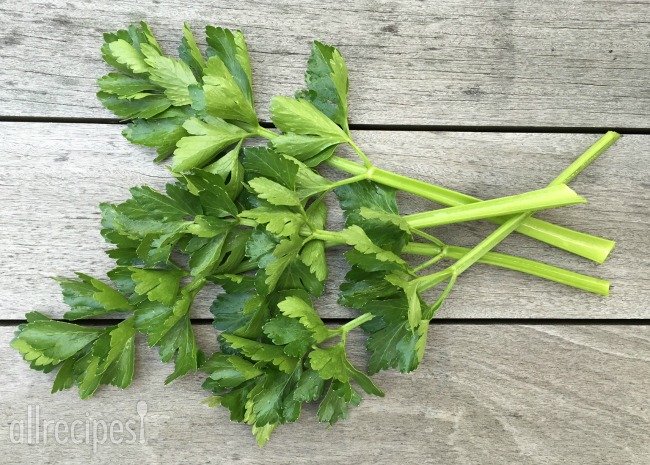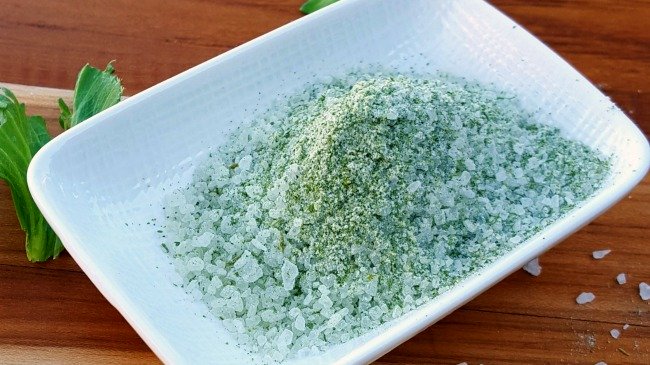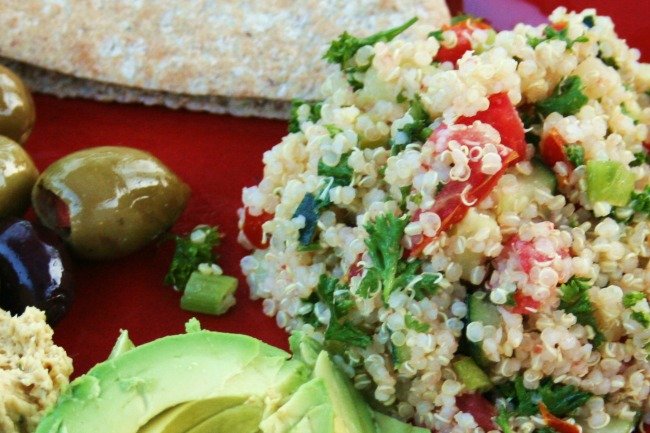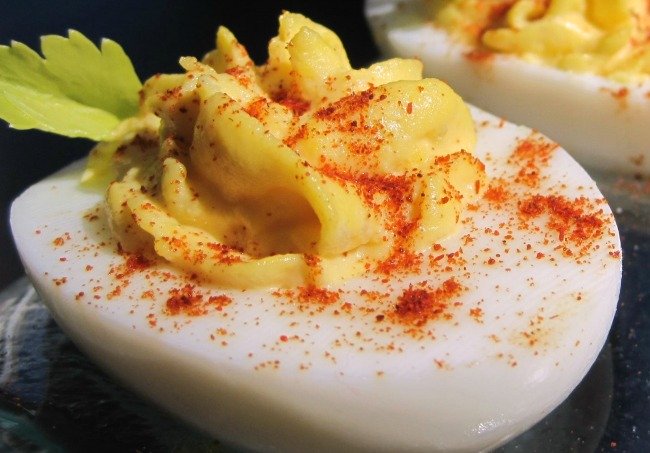5 Smart Ways You Should Be Using Celery Leaves
If you’re throwing away the leafy trimmings from your celery, you’re tossing out real food and flavor. Here are 5 ways to use ’em up in all kinds of recipes.

Celery leaves harvested from my garden. | Photo by Vanessa Greaves
A typical bunch of celery gives you two different kinds of leaves: dark green leaves growing on the outer stalks, and pale leaves growing in the center. The dark leaves tend to be thick and sturdy, with a flavor that’s something like flat-leaf parsley; very dark leaves can be more grassy and bitter, but are still serious flavor agents you should put to good use. Pale leaves have a more delicate taste and texture.
Try these ideas for using both kinds of celery leaves in everyday cooking.
Fresh Ways To Use Celery Leaves
1) Seasoning Salt
Combine kosher salt with a handful of dried celery leaves to make homemade celery salt. You can dry celery leaves in the oven or microwave; the recipe tells you how to do it. Dark leaves will give you a stronger flavor.

Celery Salt | Photo by Baking Nana
2) Pesto
Substitute dark celery leaves for peppery arugula leaves in this variation on classic pesto. Toss it with pasta, spread it on pizza and sandwiches, mash it with soft cheese and use it as a dip, shake up a spoonful with oil and vinegar for salad dressing, stir it into soups. You get the idea.
More: How to Make Your Own Pesto
3) Salad
Toss light or dark celery leaves into just about any kind of salad, such as tabbouleh. The lemony dressing helps balance the bite of dark parsley leaves.

Quinoa Tabbouleh | Photo by SHARIKAY1
4)Soups and Stews
Any recipe for soup or stew that includes celery in the mix can certainly handle celery leaves, too. Chop up the stems and light or dark leaves to cook with the stalks.
More: Top Tips for Making Great Soups
5) Garnish
The small, tender, innermost celery leaves are just the right size and texture to make a perfect garnish for deviled eggs. The darker leaves make a colorful, flavorful garnish for soups and stews.

Simple Deviled Eggs | Photo by LYNNINMA
More: How to Make Deviled Eggs